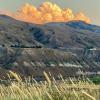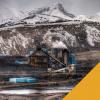The election is over, subject to the counting of mail-in ballots in a handful of close races.* The new Parliament looks very much like the old Parliament, and many people are asking: did this accomplish anything?
Environmental Law Alert Blog
Through our Environmental Law Alert blog, West Coast keeps you up to date on the latest developments and issues in environmental law. This includes:
- proposed changes to the law that will weaken, or strengthen, environmental protection;
- stories and situations where existing environmental laws are failing to protect the environment; and
- emerging legal strategies that could be used to protect our environment.
If you have an environmental story that we should hear about, please e-mail Andrew Gage. We welcome your comments on any of the posts to this blog – but please keep in mind our policies on comments.
Tired of reading complicated election platforms, struggling to figure out which party has your interests at heart? West Coast Environmental Law invites you to take a step back from the campaign rhetoric and look at some pretty pictures – word clouds to be precise – instead.
The 2021 election campaign is finally bringing us debates about climate change and how to tackle it.
This election, vote for a healthier, more just and sustainable future.
I didn’t need the Intergovernmental Panel on Climate Change (IPCC) to release their latest climate assessment report to know that climate change is here now, or that it will only get worse. Did you?
With every summer at West Coast Environmental Law, our team gets the opportunity to work with a new slate of eager law students from BC and beyond. This year – amidst an ongoing pandemic and intensifying climate impacts – the students have had a unique experience as they dipped their toes into the world of environmental and Indigenous law.
No matter where you live, it’s likely that the climate crisis has been top of mind this summer – especially with the August 9 release of the Intergovernmental Panel on Climate Change (IPCC) report.
Coal’s harms are no secret. Thermal coal (burned to generate power) is the world’s largest source of anthropogenic greenhouse gases, and metallurgic (steelmaking) coal’s impacts on fisheries are well documented.
From protests to scientific analysis, old growth forests have been much in the news in British Columbia in recent months.
This month, as communities across BC and Canada have faced deadly extreme heat and devastating wildfires, West Coast Environmental Law and a number of other Canadian environmental organizations have been forced to redirect our staff time and energy to deal with another challenge – the Alberta Inquiry.










